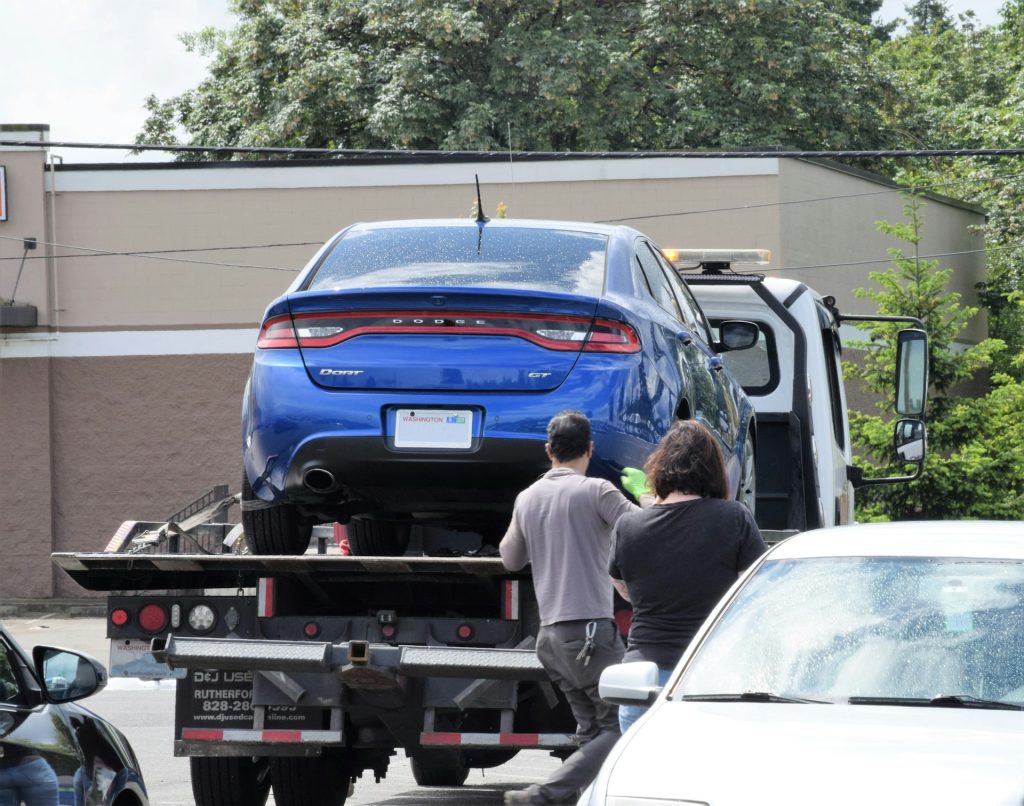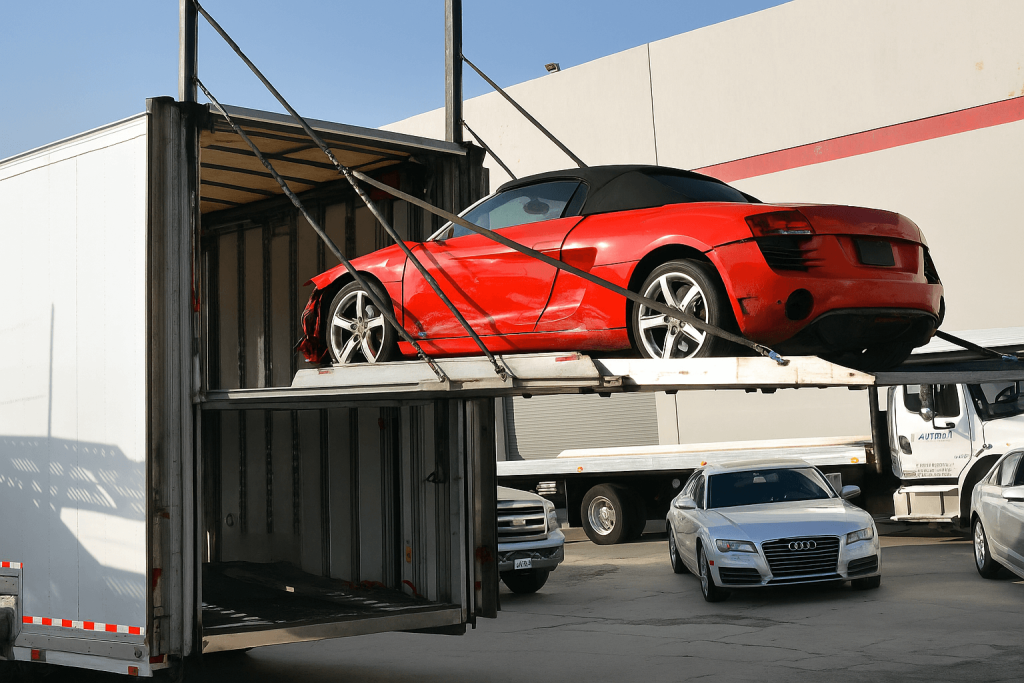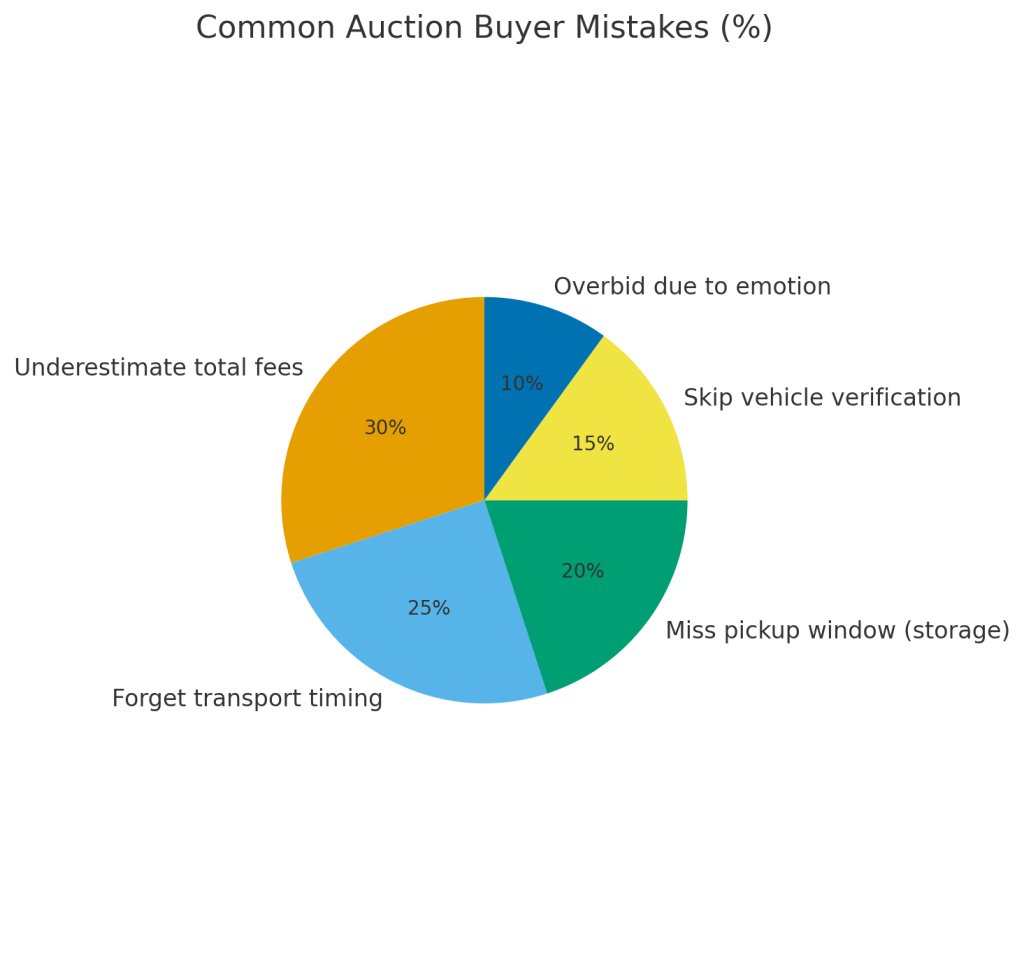:format(webp)/vulcan.abetter.bid%2Fwp-content%2Fuploads%2F2025%2F10%2Fcopart-vs-iaai-1.png)
IAAI vs Copart: Compare Copart Competitors for Smart Auction Buys
Copart is ideal for buyers who want fast-paced auctions and the widest selection of salvage vehicles. IAAI, on the other hand, appeals to those who prefer consistent, insurance-grade inventory and a more predictable buying experience.
In practice, Copart handles over 3 million vehicles annually, while IAAI processes around 2 million, giving buyers a sense of the difference in scale.
Who Uses Copart and IAAI Platforms
Copart and IAAI serve a wide range of sellers and buyers across the automotive ecosystem. Below is a breakdown of their typical users:
Institutional Sellers:
- Insurance companies — dispose of total loss vehicles.
- Banks and lenders — liquidate repossessed cars.
- Fleet operators — rotate aging or off-lease inventory.
- Charitable organizations — auction donated vehicles.
Buyer Segments:
- Exporters — purchase salvage vehicles for resale in international markets.
- Body shops and rebuilders — acquire repairable cars with resale potential.
- Retail buyers — access auctions via brokers when lacking a dealer license.
- Hobbyists and collectors — search for affordable project vehicles.
Both platforms offer remote access to the national inventory. Copart attracts high-volume buyers seeking speed and platform tools. IAAI focuses on insurance-grade vehicles with more predictable inventory quality.
Auction Registration and Account Types
To participate in Copart or IAAI auctions, users must create an account and complete identity verification. Depending on the platform and vehicle type, access may be restricted based on license status. Buyers without a dealer license can still participate by using a registered broker.
Most platforms offer three account tiers:
- Public users – limited inventory and bidding access.
- Business users – broader selection and bidding limits.
- Dealer/dismantler accounts – full access, including restricted vehicles.
If you don’t have a license, brokers can bid on your behalf and handle documentation.
How to Register
- Create an account and verify your ID, required for all participants.
- Submit a dealer license or work with a licensed broker.
- Add your preferred payment method – bank account, card, or wire transfer.
- Agree to auction terms and set bidding limits.
- Upload tax and business documents if registering as a company.
Planning to scale? Learn how to get an auction license early. This step often lowers friction when completing a purchase and improves turnaround times.
Auction Process Comparison
Both sites offer timed online sales with live auction elements. Interfaces differ, but the overall rhythm stays recognizable to regular participants. Copart emphasizes fast lot turnover and broad inventory; IAAI’s run lists reflect insurer habits. The bidding process includes pre-bid, live bidding, provisional results, and seller approval where reserves apply. You’ll pay, schedule, and check upon delivery.
| Step | Copart | IAAI |
| Pre-bid | Wide online pre-bid across deep inventory | Structured lists aligned to insurer operations |
| Live | Fast lanes; heavy bidding | Disciplined cadence; insurer-centric |
| Result | Immediate or on-approval | On-approval common |
| Main charges | All fees are possible | Similar; brackets may differ |
| After | Tight pickup windows | Similar timing and storage rules |
Copart’s pace favors constant action; IAAI’s insurer stream delivers steady vehicles. Choose based on whether you prefer speed or a predictable cadence; the contrast is clear.
Vehicle Inventory and Lot Diversity
Expect insurer vehicles, repossessed cars, donations, and fleet inventory. Product variety can shift week to week, so watch run lists. You’ll find different cars in many places.
Title Branding Differences

Title branding shapes market value, export options, and repair cost. Because this procedure is state-driven, identical damage can lead to different export paperwork outcomes. Copart and IAAI label titles per state rules: salvage titles, rebuilt, non-repairable, junk, and limited clean title. State nuances affect buying, shipping, and downstream resale. Before proceeding, read the lot page and check the auction history by VIN for prior accidents.
- Salvage titles: major damage; post-repair checks needed.
- Rebuilt: ex-salvage, now state-verified.
- Non-repairable: parts only.
- Junk: dismantle only.
- Clean title: no details noted, still confirm data.
- Export-only: limited U.S. use.
The choice influences fees, market appeal, and route planning. Confirm the state limitations required for your purchase.
Vehicle Condition and Inspection Options
Photos and CRs help. Remote buyers benefit from detailed visuals to reduce uncertainty. These typically include multiple exterior angles, interior shots, and damage close-ups. While neither Copart nor IAAI allows physical inspections for all users, detailed online visuals help reduce risk, especially for remote and international buyers. Some locations may offer enhanced CRs or additional image requests through brokers.
Copart vs IAAI Fees
Both platforms charge layered fees based on final price, locations, and optional services. Pricing ladders are published, but make sure to read the fine print per branch. A separate auction fee may appear, plus delivery and any broker costs if you lack a license. Here’s an auction fee breakdown:
| Fee Type | Copart (typical) | IAAI (typical) |
| Buyer fees | Tiered by final sale price | Tiered; brackets vary |
| Gate fees | Per-vehicle release | Similar per-vehicle release |
| Auction fee | Sometimes itemized | Sometimes itemized |
| Storage fees | Accrue after the window | Same principle |
| Optional services | Loading, pull-out, shipping support | Loading, pull-out, support |
Read each lot’s fees section. You might be charged for key pulls or forklifts. Benchmark with the best car auction sites to keep budget discipline.
On inexpensive cars, stacked fees can noticeably lift landed cost.
Hidden Fees and Storage Costs
Late pickups trigger fees that rise daily. Planning the truck’s appointment before payment helps avoid unnecessary bills. If your carrier misses the window, yards keep you charged until release, erasing thin margins.
Plan for doc mailing and optional services in your pay model. Building a simple timeline for every step reduces surprises. Many buyers lean on a broker for scheduling to prevent delays. A calendar and reminders help.
According to A Better Bid, a one-day miss often adds a measurable cost to lower-priced vehicles.
Title Transfer and Document Handling
After the win, titles flow to the registered person or broker, then to you. Clear communication about addresses prevents routing mistakes and re-mailing. International buyers rely on export services for collection and courier handoff. Confirm approval timing and any required signatures. Some manufacturers limit road use until inspections. Ask how long mailing takes. Delays should be taken into account.
- Confirm name and address before sale.
- Ensure taxes and fees are paid as required.
- Track courier data.
- Keep copies for your business.
- Know state VIN checks or emissions steps.
- Arrange title shipping if exporting.
Accurate titles ensure safety, speed customs, and preserve market value.
Payment, Pickup, and Logistics

Expect quick payment via approved rails. Double-check cutoffs so you don’t miss your release window. Pay within the deadline, then book pickup or shipping. Confirm forklift availability, release hours, and yard operations. Many buyers use marketplace services or a broker to coordinate shipping and release codes. Check at delivery and photograph issues. If exporting, match title timing to port cutoffs. Use simple technology (tracking apps) to maintain a connection with dispatch and avoid idle days.
| Step | What to Do | Why It Matters |
| Pay promptly | Lock the deal; avoid late fees | Prevent cancellations |
| Book shipping | Insured carrier with yard access | Reduce dwell and risk |
| Confirm fees | Prepare the exact pay amount | Faster release |
| Plan pickup | Meet yard hours | Avoid returns |
| Arrival check | Photo condition | Aids claims if needed |
A quick VIN decoder check validates options before the truck arrives.
Customer Reviews and Reputation
Public review themes focus on transparency, images, and yard help. Sampling multiple sources offers a more balanced view than any single rating. Experiences vary by location and staff. These insights are based on customer feedback gathered from various online platforms. They represent user perspectives and not the views of our team. Compare praise and complaints to set expectations before buying.
Copart Reviews and Ratings
Customer reviews of Copart highlight both positive and negative experiences. The feedback shows how the service can work well for some buyers and sellers, while creating challenges for others.
IAAI Reviews and Ratings
Customer reviews of IAAI reflect both strengths and weaknesses. For some buyers and sellers, the process is reliable and straightforward, while others encounter problems with fees, service, or unexpected vehicle issues.
A Better Bid: Trustworthy Alternative to Copart
No dealer license? A broker like A Better Bid opens Copart and IAAI online car auctions without complexity. For newcomers, a guided path reduces paperwork loops and keeps schedules tighter. They register, place bids, pay, arrange shipping, and disclose fees clearly. You still select vehicles, set a budget, and define condition targets.
For newcomers buying at online car auctions, a Copart alternative can smooth the required paperwork and yard releases, so you save time and avoid storage. ABB also checks prior accidents and trend data before purchase using public sources to reduce risk.
Well-planned first purchases often win within a few targeted attempts.
Disputes and Post-Sale Recourse
Even with photos, surprises happen. Set expectations early by reading policy language before bidding. Know dispute windows, documentation rules, and who decides outcomes. Most cases involve undisclosed damage, missing items, or title delays. Record delivery condition with timestamped photos as vehicles arrive and keep the BOL.
- Read the policy before bidding.
- File quickly with clear imagery.
- Keep transport BOL and relevant data.
- Follow seller timelines.
- Use a broker or concierge help if needed.
Fast, organized submissions often matter more than emotion.
What Option to Choose as an International Buyer?

Exporters weigh yard locations, title timing, port distance, and shipping lanes. Extra planning around customs and sailing schedules prevents costly misses. Copart’s global presence and steady bidding volume suit high-throughput exporters; IAAI’s insurer flow offers consistent vehicles for targeted markets. Without a license, partner with a broker to meet the required paperwork and pay duties.
Pre-book shipping, confirm gate fees, and secure release codes. For global buyers, online car auctions provide access to top brands and niche cars; careful planning safeguards margin.
Common Auction Buyer Mistakes and How to Avoid Them
New buyers underestimate total fees, miss pickup clocks, or skip verification. Another recurring pitfall is forgetting to plan transport timing alongside cost. Others buy the wrong title for their market, or overlook export restrictions. Overbidding happens when emotion replaces math. Most common buyer mistakes can be grouped into a few clear categories. The chart below shows how often each issue occurs based on user experiences.

You can avoid these mistakes:
- Run comps, fee calculators, and transport quotes before bidding.
- Check title rules for your target market.
- Book shipping before you pay.
- Use a broker if the license steps slow you down.
- Track pickup windows to avoid being charged for storage.
Write down a firm budget, pace bidding, and keep searching with realistic repair plans.
A Better Bid Insight: Disciplined planning can trim overall cost by single-digit percentages on many builds.
Summary
Copart offers unmatched scale in online car auctions; IAAI brings insurer-focused flow. Plan for upfront totals by modeling fees well before you bid. Without a license, a broker provides access and reduces friction. Whether you target cars, trucks, boats, or motorcycles, use a checklist, respect storage clocks, and document arrivals. With disciplined searching and preparation, both auctions can work for your business and market goals, especially if you benchmark with online car auction sites and validate specs with a VIN decoder.
![]() FAQ
FAQ
Show more
Can I Bid on Multiple Cars at Once, and Cancel Some If I Win Too Many?
Yes, you can place bids on multiple cars, but cancellations after winning are rare and risky. Expect penalties or bans. Model your fees and cash timing carefully so you can pay and pick up all vehicles you win.
Are Post-Sale Inspections Available on IAAI Before Removing the Car?
IAAI policies vary by yard. You can usually confirm basics at pickup, but formal post-sale inspections are limited. Bring a checklist, photograph the vehicles, and note issues on the BOL immediately to preserve options for disputes.
Is Flood Damage Always Disclosed by Auto Auctions?
Not always. Sellers disclose what they know, and platforms rely on seller input.
– Study photos and undercarriage residue or corrosion.
– Read CR notes closely.
– Order more images or check on arrival.
Which Auction Platform More Often Lists Cars with Frame Damage?
Both list frame-damaged vehicles because insurers feed them as total loss units. Copart’s volume means more in raw numbers. IAAI shows many too. Read CRs and lot notes carefully before buying.
Are Title Delays Common on IAAI Purchases?
Delays happen on both online car auctions, typically tied to state rules or seller processing. Plan a buffer. Communicate early with the yard and your broker so documents and shipping timelines stay aligned.
Recommended Articles
:format(webp)/vulcan.abetter.bid%2Fwp-content%2Fuploads%2F2023%2F03%2Frawkkim-UsWvRFTssRs-unsplash.jpg)
How to Buy Cars at Auction: Buying Guide & Tips
:format(webp)/vulcan.abetter.bid%2Fwp-content%2Fuploads%2F2024%2F01%2Fartem-beliaikin-pWe4gf7jajg-unsplash.jpg)

:format(webp)/vulcan.abetter.bid%2Fwp-content%2Fuploads%2F2022%2F10%2F2022-10-05-11.30.40-150x150.jpg)
 FAQ
FAQ :format(webp)/vulcan.abetter.bid%2Fwp-content%2Fuploads%2F2025%2F09%2Fsai-kalyan-achanta-OeGVL6vuPUI-unsplash.jpg)
:format(webp)/vulcan.abetter.bid%2Fwp-content%2Fuploads%2F2025%2F10%2Fcopart-vs-a-better-bid.png)
:format(webp)/vulcan.abetter.bid%2Fwp-content%2Fuploads%2F2025%2F10%2Fcopart-vs-iaai-1.png)
:format(webp)/vulcan.abetter.bid%2Fwp-content%2Fuploads%2F2025%2F09%2Fvasile-valcan-1HqixV1agUw-unsplash.jpg)

